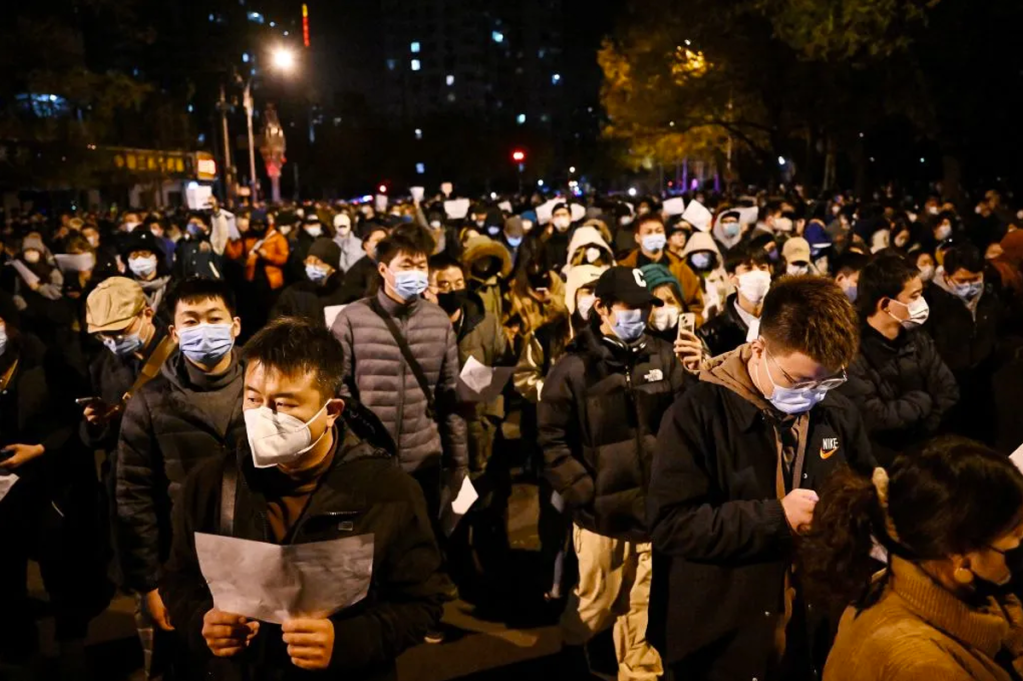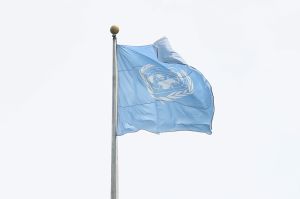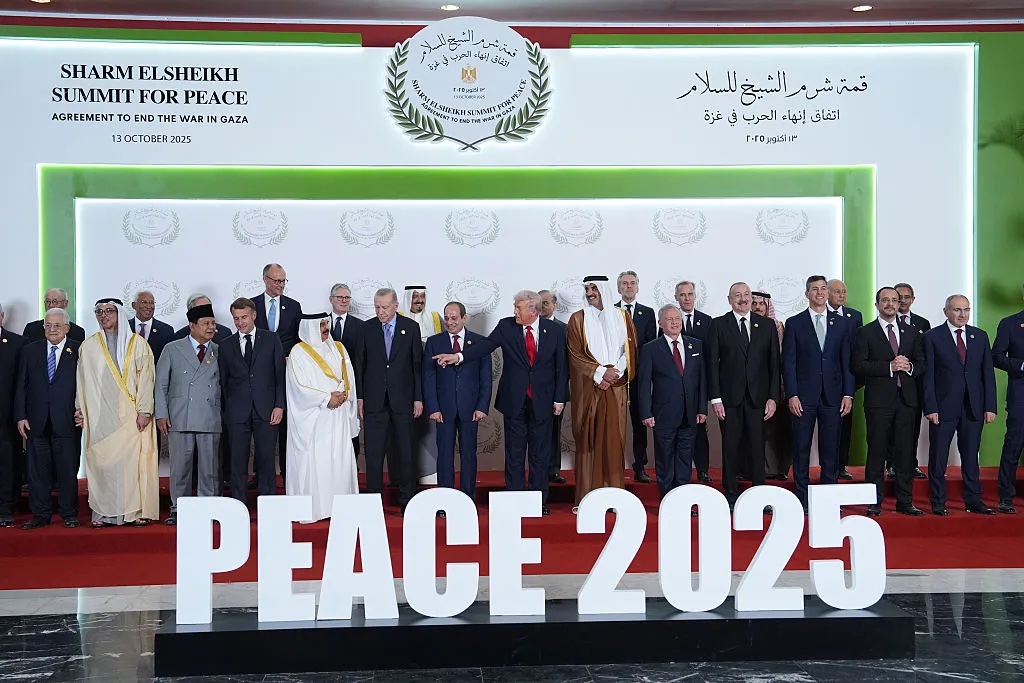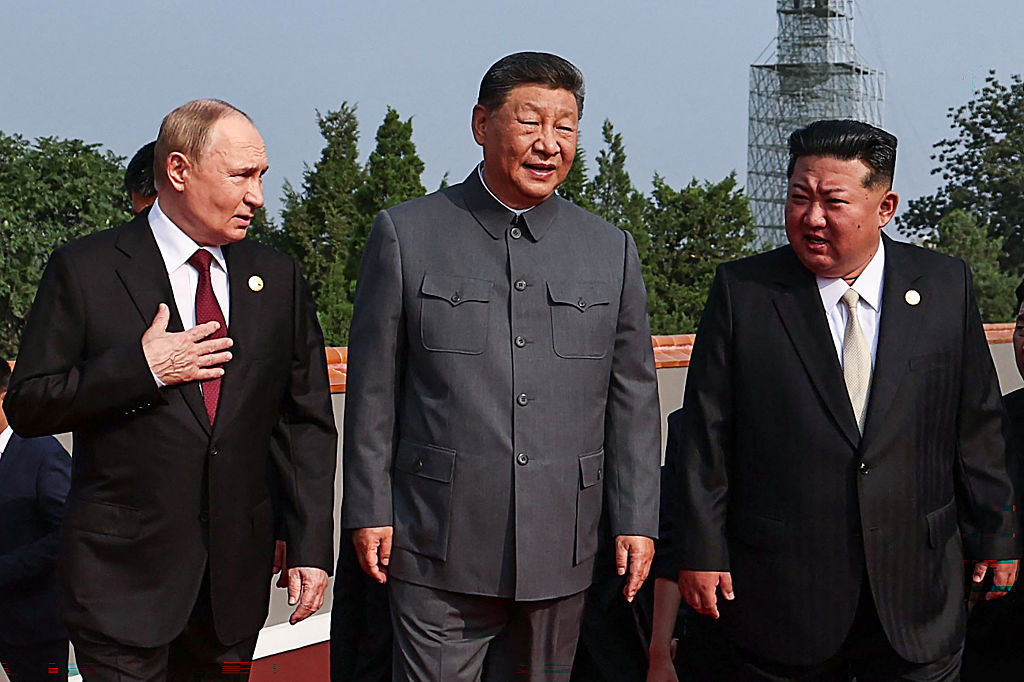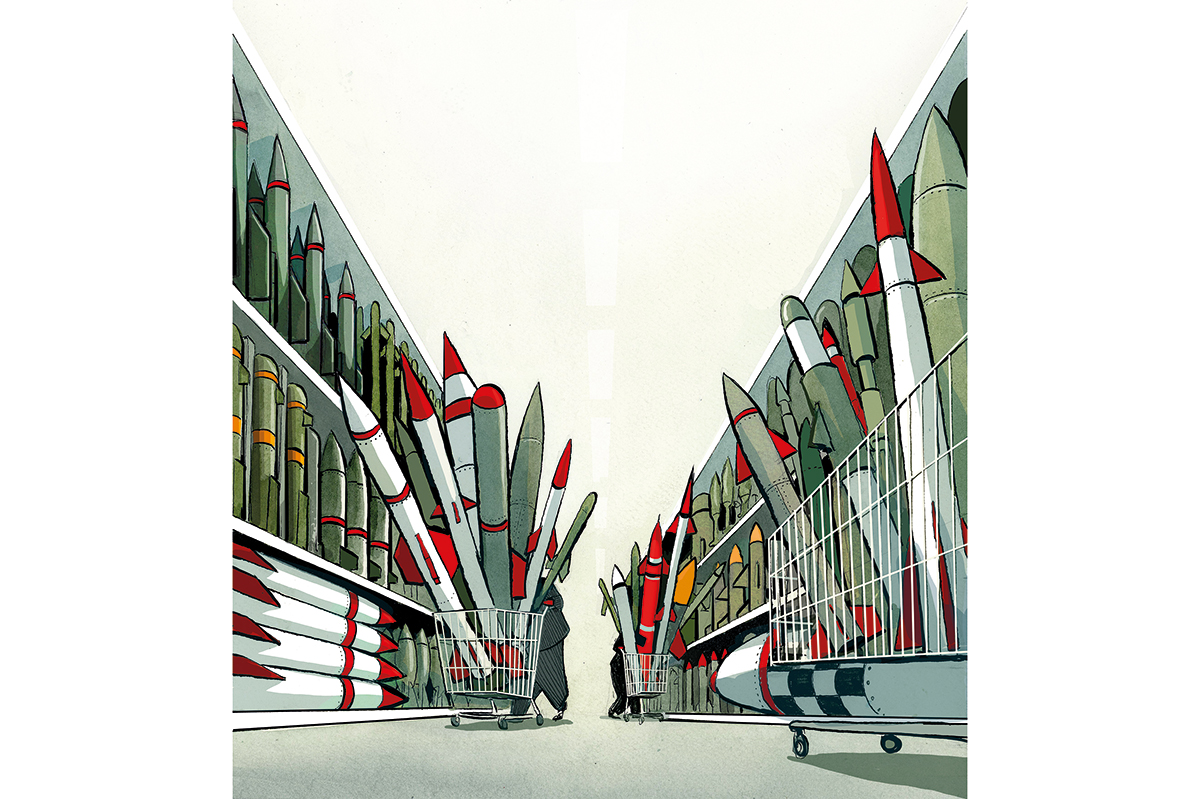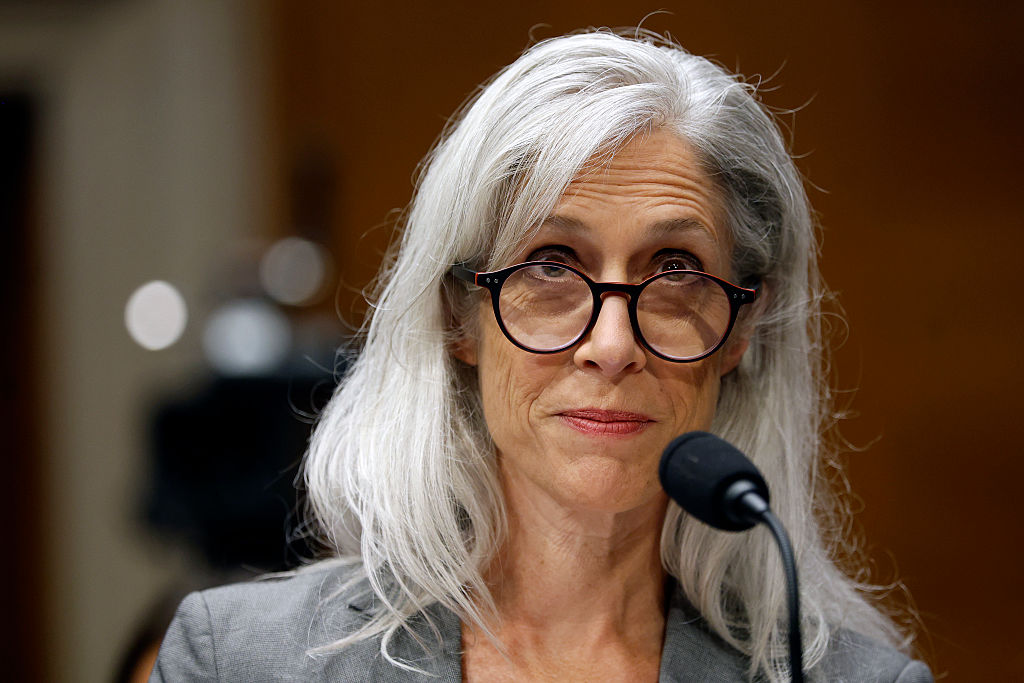I’ve always loved the Chinese national anthem. I used to think I was the loudest Communist Youth League pioneer as my class belted it out, dressed in our little red neckerchiefs, during our school’s weekly flag-raising ceremony. “The March of the Volunteers” was composed in the 1930s during the Japanese invasion of Manchuria; it starts with “Stand up, those who refuse to be slaves” and only gets more rousing. I could see, even at a young age in the early 2000s, that China wouldn’t be facing those days again — it was getting wealthier and more powerful. Standing in a Nanjing schoolyard, I was proud of China’s return to greatness.
During those years of reform, it felt like people could achieve anything they wanted. A middling English teacher became the head of a multi-billion dollar e-commerce company called Alibaba; an engineer who almost starved in childhood founded the world’s largest telecoms manufacturer, Huawei. My parents followed these stratospheric success stories with envy, but they had already done well for themselves; within a generation, my family and millions of others had secured entry to the middle class.
There seemed to be an unspoken social contract: the Chinese Communist Party would ensure that people’s lives became materially better; in return, they would have sole and unchallengeable power. Literacy went up, as did lifespans. People started having money to buy what they wanted, rather than simply what they needed. Not everyone agreed with this arrangement, but it was easy for the majority to overlook the costs: the crackdowns on ethnic and religious minorities, the imprisoning of democracy activists, the poor left behind by urbanization. China seemed to be on track to become the world’s largest economy without the division and turbulence of other wealthy nations.
Now I see that it was never a fair contract. The Chinese people have no recourse when the CCP reneges on its side of the bargain. My own re-education has taken years. It began once I’d left the country, when I saw a garish orange sculpture at Hong Kong University in memory of those who died at Tiananmen Square. The copper column of screaming faces, all melded together, was removed last year.
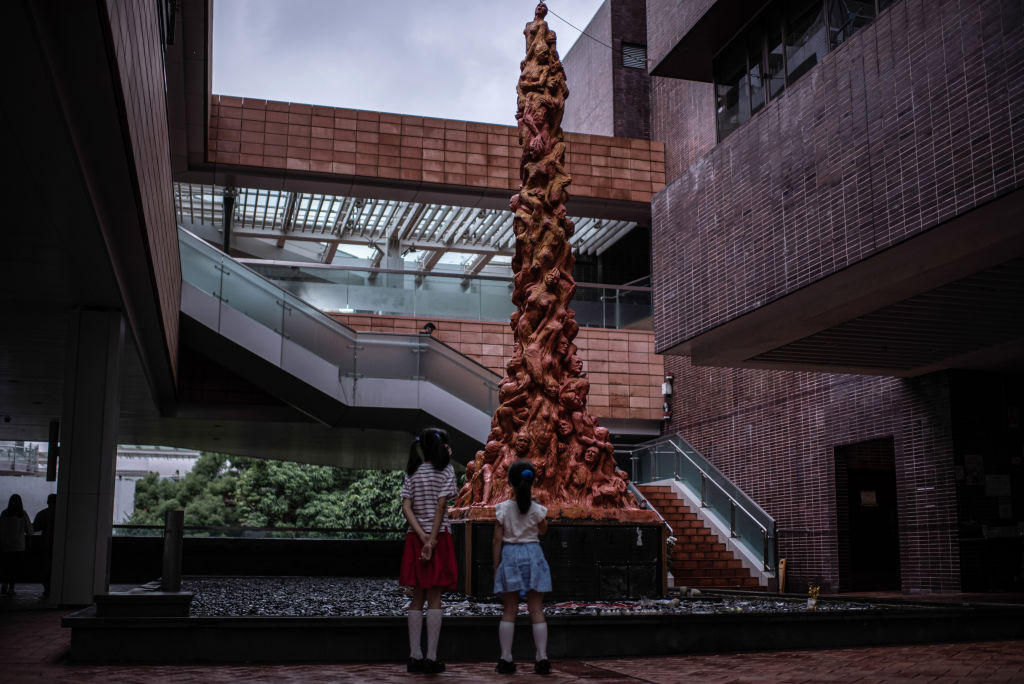
Then came the Shanghai lockdown. Neither wealth nor education could save the Shanghainese from the brutality of the state. Banned from even visiting the shops, some elderly residents survived on one bowl of noodles a day, a level of starvation they probably hadn’t experienced since the Cultural Revolution. I realized that whatever the CCP gave you, it could just as easily take away.
Why has it taken me so long to realize this? It’s partly because my family couldn’t possibly have achieved these decades of prosperity without acquiescing to the system. I’m also afraid of the unknown: few one-party countries successfully change into happy democracies. So is it really worth agitating for? I don’t have any good answers.
Clearly, “zero Covid” has also woken some of my compatriots up. Covid measures are supposedly enforced for people’s own good. But then events come along like last week’s fire in a Xinjiang high-rise, in which ten died. Authorities have denied the doors were sealed, to general incredulity, and seemed to blame the victims for “a lack of survival know-how.” Before that, there was the Guizhou bus crash in September, when twenty-seven were killed on a dark mountain road as they were driven to a quarantine center.
The hand of the state now reaches into every part of people’s lives — the Communist Party dictates where they can go and who they can see. Add to that the Covid shocks to the Chinese economy, record youth unemployment and a teetering property market, and you don’t have to be a pro-democracy activist to see that, for too many people, the CCP is not meeting its side of the deal.
For the first time since the Tiananmen Square protests, the Chinese have been taking to the streets across the country: in Beijing, Shanghai, Chengdu, Xi’An, Hangzhou, Nanjing, Urumqi. They mourned the ten victims of the Xinjiang fire and demanded an end to Covid testing and QR health codes. The fact that the victims were most likely Uighurs didn’t stand in the way of their solidarity. Some protesters borrowed the words of a lone man who last month hung a banner over a bridge in Beijing: “Democracy not dictators; citizens not slaves.” Many merely held up blank pieces of paper — a wordless, silent protest.
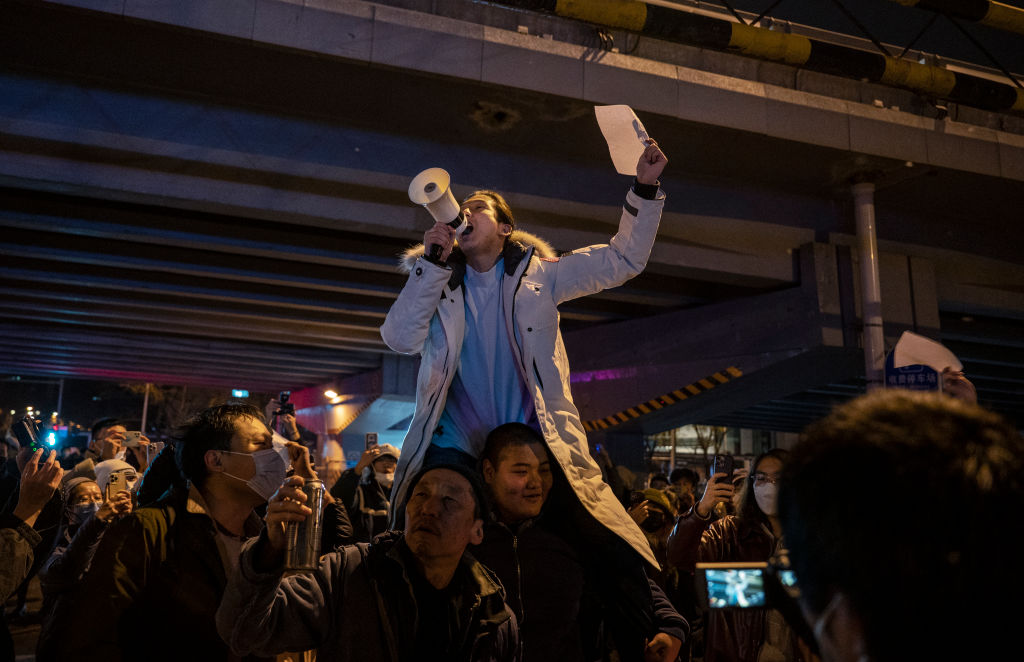
In response to accusations that foreign forces were stirring up discontent, one Beijing student shot back: “Do you mean Marx and Engels?” Another protester led a trio of alpacas through Shanghai; the animal has become a protest meme thanks to its supposed resemblance to the mythical grass mud horse, the name for which in Chinese sounds a little like a sexual act involving one’s mother.
Officers are now stationed near the sites of last weekend’s protests, reportedly checking the phones of passersby for Twitter and Telegram, two apps beyond the reach of Chinese censors. Some students at troublemaking universities such as Beijing’s Tsinghua are being sent home early for the winter break. The central government has started to blame local officials for over-zealous implementation of Covid policies and is trying to deflect anger on to profiteering PCR firms.
As I was scrolling through social media at the weekend, one video threw me. It showed a gathering of students on a Nanjing campus singing the national anthem: “Stand up, stand up, stand up!” I wept. When I was a child, the national anthem made me proud. Now it makes me grieve.
This article was originally published in The Spectator’s UK magazine. Subscribe to the World edition here.



